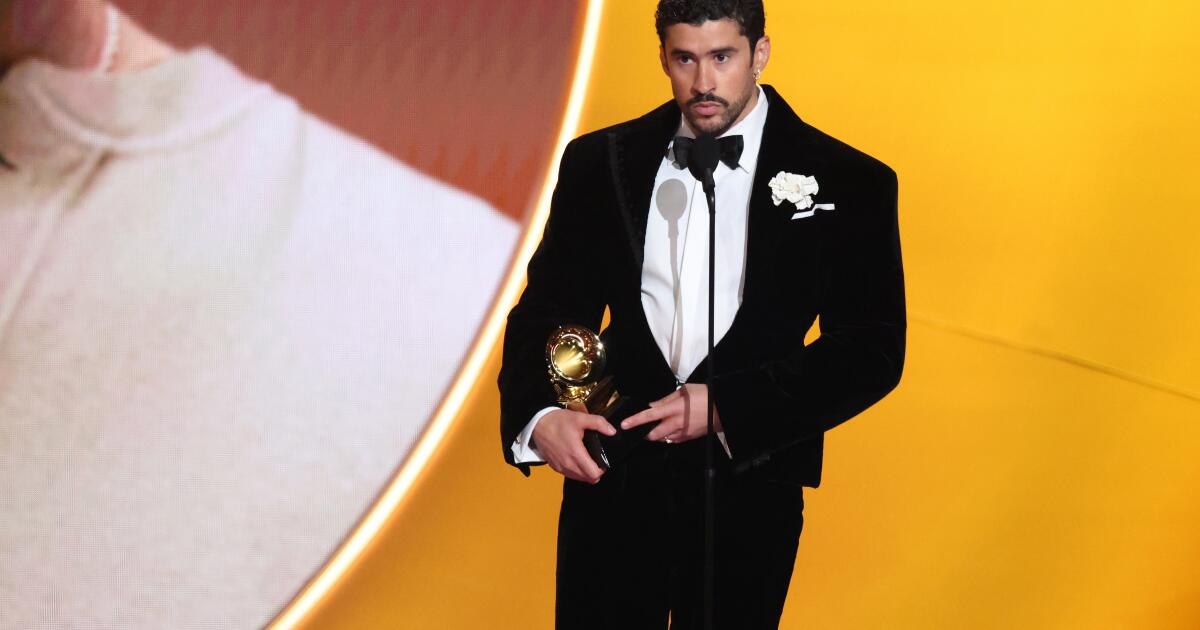Bad Bunny wins Grammy for album of the year
Bad Bunny’s “Débi Tirar Más Fotos” was named album of the year at Sunday night’s 68th Grammy Awards — the first time a Spanish-language LP has won the Recording Academy’s most prestigious prize.
Bunny delivered the speech primarily in Spanish.
“I want to dedicate this award to all the people who had to leave their homeland, their country, to follow their dreams,” he said as the audience rose to its feet.
“Puerto Rico, believe me when I say that we are so much bigger than 100 by 35 and there is nothing that exists that we can’t accomplish,” he said in Spanish. “Thank God, thank you to the academy, thank you to all the people who have believed in me throughout my whole career. To all the people who worked on this album. Thank you, mami, for giving birth to me in Puerto Rico. I love you.”
“For all the people who have lost a loved one and even then have had to continue moving forward and continue with so much strength, this award is for you all.”
Intricately arranged with the sounds of the singer and rapper’s native Puerto Rico, “Débi Tirar Más Fotos” was released to rave reviews in January 2025 and quickly reached No. 1 on the Billboard 200 album chart. Last summer, Bad Bunny supported the project with a 30-date concert residency at San Juan’s José Miguel Agrelot Coliseum; he followed that with the announcement of a world tour that avoided the United States, in part, he told I-D magazine, because of his concern that immigration agents might turn up at shows.
Prior to Sunday’s win, “Débi Tirar Más Fotos” — the title translates in English to “I Should Have Taken More Photos” — was named album of the year at November’s Latin Grammy Awards. Next weekend, Bad Bunny (whose real name is Benito Antonio Martínez Ocasio) will headline the halftime show at Super Bowl LX in Santa Clara.
He won earlier in the night for música urbana album and global music performance.
The other LPs nominated for album of the year were Justin Bieber’s “Swag,” Sabrina Carpenter’s “Man’s Best Friend,” Clipse’s “Let God Sort Em Out,” Lady Gaga’s “Mayhem,” Kendrick Lamar’s “GNX,” Leon Thomas’ “Mutt” and Tyler, the Creator’s “Chromakopia.”
In 2025, Beyoncé took the prize with “Cowboy Carter.”
